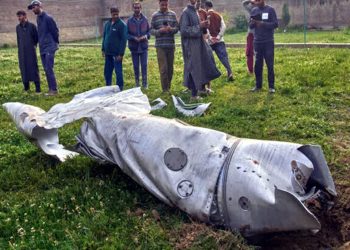Pakistan reported its first “suspected” case of the new coronavirus variant Omicron in a woman in Karachi on Wednesday, Sindh Health Minister Dr Azra Fazal Pechuho announced on Thursday.
The new South African variant of coronavirus with a high number of mutations has raised concerns among scientists and triggered travel restrictions by a number of countries amid fears of coronavirus transmissions.
What is Omicron?
The world is currently facing a new variant of the coronavirus, which was first identified in South Africa and the province of Gauteng in South Africa became the center of this new variant but now it is spreading all over the world.
In a statement, the World Health Organization (WHO) designated the new coronavirus strain as a “variant of concern,” naming it “omicron” after a letter in the Greek alphabet.
Also called B.1.1.529, the variant has a very unusual constellation of mutations, which are worrying because they could help it evade the body’s immune response and make it more transmissible, scientists have said.
The case in Karachi
Pakistan has detected its first ‘suspected’ case of the Omicron variant in Karachi. Sindh Health Minister Azra Fazal Pechuho said the authorities “suspect the case to be of the Omicron variant due to the virus’ behaviour”.
“The genome sequencing has not been done as of now, but we suspect it to be the Omicron variant due to the manner in which the virus is behaving,” she said in a video statement. She added that the suspected Omicron-affected patient is a 57-year old woman from the provincial capital.
A spokesperson for the Aga Khan University Hospital confirmed the development and said they had “received the first patient suspected of having Covid-19 Omicron variant”.
“We are awaiting the results of the final (genome sequencing) confirmatory test, which will take a few days and have reported the suspected patient to the health department.”
Are COVID-19 vaccines effective against the new variant?
Researchers are looking into any potential impact the Omicron variant has on the effectiveness of COVID-19 vaccines. Although information is still limited, WHO believes it is a reasonable assumption that the currently available vaccines offer some protection against severe disease and death.
It is also important to be vaccinated to protect against the other widely circulating variants, such as the Delta one. When it’s your turn, make sure to get vaccinated. If your vaccination involves two doses, it’s important to receive both in order to have the maximum protection.
Travel ban
Pakistan had placed a complete ban on Nov 27 on travel from six south African countries — South Africa, Lesotho, Eswatini, Mozambique, Botswana and Namibia — and Hong Kong in the wake of the variant’s discovery.
This travel ban was later extended to nine more countries — Croatia, Hungary, Netherlands, Ukraine, Ireland, Slovenia, Vietnam, Poland and Zimbabwe.
Additionally, the NCOC placed 13 countries comprising United States, United Kingdom, Germany, Trinidad and Tobago, Azerbaijan, Mexico, Sri Lanka, Russia, Thailand, France, Austria, Afghanistan and Turkey in category B.
Covid-19 curbs in Sindh
On November 30, the Sindh government issued new guidelines — applicable from December 1-15 — to curb Covid-19’s transmission in wake of the threat posed by the new variant.
Indoor, outdoor gatherings allowed for vaccinated individuals. For Karachi, Sukkur and Sanghar the limit is 500 people for indoor events and 1,000 for outdoor. For the rest of the province it is 300 people for indoor and 1,000 for outdoor.
Indoor dining allowed for vaccinated people till 11:59pm. 70pc occupancy for Karachi, Sukkur, and Sanghar and 50pc for the rest of the province.
Outdoor dining is allowed for fully vaccinated citizens till 11:59pm.
Markets and businesses can function till 10pm while essential services can operate 24/7.
Shrines, indoor gyms and cinemas are open for fully vaccinated individuals.
100pc attendance at offices with routine timings.
Amusement parks and swimming pools will operate at 70pc occupancy in Karachi, Sukkur and Sanghar and 50pc for the rest of the province.



































